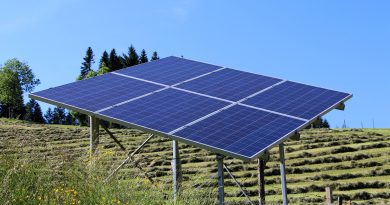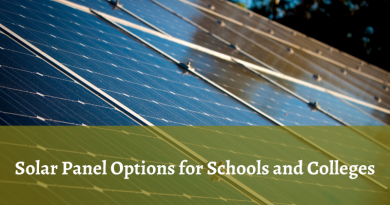Does Water Affect Solar Panels?
Water, an essential element in many aspects of life, plays a complex role in the performance of solar panels. This comprehensive guide explores how water can both positively and negatively impact solar panel efficiency, the risks of water damage, and strategies for maintaining optimal performance in wet conditions.
Table of Contents
- 1 The Effect of Water on Solar Panel Temperature
- 1.1 Water as a Cleaning Agent for Solar Panels
- 1.2 The Risk of Water Damage to Solar Panels
- 1.3 Waterproofing and Sealing Solar Panel Systems
- 1.4 Maintaining Solar Panel Performance in Humid Climates
- 1.5 The Role of Water in Solar Panel Cooling Technologies
- 1.6 Common Misconceptions About Water and Solar Panels
- 1.7 The Impact of Water on Different Solar Panel Types
- 1.8 Protecting Solar Panels from Extreme Weather Conditions Involving Water
- 1.9 The Future of Water-Resistant Solar Panel Technology
- 1.10 The Impact of Water on Solar Panel Performance
- 1.11 FAQ
The Effect of Water on Solar Panel Temperature
Cooling Effect:
- Positive Impact: Water can help cool solar panels, reducing the temperature and increasing efficiency. Solar panels typically perform better at lower temperatures, as excessive heat can decrease their energy output.
- Negative Impact: While water can cool panels, pooling or standing water can create issues if it reflects sunlight away from the panels, potentially reducing the amount of light absorbed.
Relationship Between Temperature and Efficiency:
- Lower temperatures generally lead to higher efficiency in solar panels, making the cooling effect of water beneficial in many cases.
Water as a Cleaning Agent for Solar Panels
Natural Cleaning:
- Rainwater: Acts as a natural cleaner, washing away dust, dirt, and debris that can accumulate on solar panels and obstruct sunlight.
- Benefits: Regular rainfall can help maintain solar panel efficiency by keeping the surface clean without the need for manual cleaning.
Manual Cleaning:
- Using Water: For areas with little rainfall, water can be used manually to clean panels. It’s essential to use deionized water to avoid mineral deposits on the panel surface.
The Risk of Water Damage to Solar Panels
Potential Water Damage:
- Flooding: In areas prone to flooding, water can damage the electrical components of solar panels, particularly if they are submerged.
- Leaks: Poorly sealed panels or faulty installation can allow water to seep into the panel, damaging the internal components and reducing efficiency.
Waterproofing and Sealing Solar Panel Systems
Waterproof Design:
- Importance of Sealing: Ensuring that solar panels are properly sealed and waterproofed during installation is crucial to prevent water ingress.
- Materials: High-quality sealants and gaskets are used in solar panels to protect against water penetration, ensuring long-term durability.
Maintenance Tips:
- Regular Inspections: Periodically check seals and connections to ensure they remain intact and effective.
- Professional Maintenance: Have a professional inspect your system periodically, especially after severe weather, to ensure all seals are functioning correctly.
Maintaining Solar Panel Performance in Humid Climates
Challenges of Humidity:
- Moisture Accumulation: In humid climates, moisture can accumulate on the panels, potentially leading to mold or mildew, which can obscure the panel surface.
- Corrosion: High humidity can accelerate the corrosion of metal components, reducing the lifespan of the system.
Preventive Measures:
- Anti-Corrosion Coatings: Use panels with anti-corrosion coatings, especially in coastal or humid regions.
- Ventilation: Ensure adequate ventilation around the panels to reduce moisture buildup.
The Role of Water in Solar Panel Cooling Technologies
Active Cooling Systems:
- Water-Based Cooling: Some advanced solar systems use water-based cooling technologies, where water flows over or under the panels to reduce temperature and improve efficiency.
- Benefits: Enhanced cooling can lead to a significant increase in energy output, especially in hot climates.
Passive Cooling:
- Rainwater: Natural rainwater can serve as a passive cooling mechanism, reducing the need for more complex cooling systems in some environments.
Common Misconceptions About Water and Solar Panels
Myth: Water always damages solar panels.
Fact: While improper exposure to water can cause damage, properly sealed and maintained panels are designed to withstand rain, snow, and humidity.
Myth: Solar panels don’t work well in wet conditions.
Fact: Solar panels can still generate electricity in cloudy or rainy conditions, albeit at reduced efficiency compared to sunny days.
The Impact of Water on Different Solar Panel Types
Monocrystalline and Polycrystalline Panels:
Performance: Both types generally perform well in wet conditions if properly sealed. However, monocrystalline panels tend to be more efficient in cooler, wetter climates.
Thin-Film Panels:
Durability: Thin-film panels are often more flexible and may be more susceptible to water damage if not properly protected. However, they can also be more resistant to extreme temperatures.
Protecting Solar Panels from Extreme Weather Conditions Involving Water
Storms and Heavy Rain:
Wind and Water: High winds combined with heavy rain can cause physical damage to panels or their mounting structures. Proper installation and regular maintenance are key to minimizing this risk.
Snow and Ice:
Accumulation: In cold climates, snow and ice can accumulate on panels, blocking sunlight and reducing efficiency. Regular clearing and installing panels at an optimal tilt can help mitigate this issue.
The Future of Water-Resistant Solar Panel Technology
Advancements in Sealing and Coating:
Nanocoatings: Future solar panels may use advanced nanocoatings that repel water and prevent moisture buildup, further enhancing durability and efficiency.
Improved Materials:
Waterproof Materials: Ongoing research aims to develop new materials that are more resistant to water damage while maintaining high efficiency.
Integration with Water-Based Systems:
Hybrid Systems: The integration of solar panels with water-based cooling or heating systems could become more common, offering dual benefits of energy generation and temperature regulation.
The Impact of Water on Solar Panel Performance
| Aspect | Positive Impact | Negative Impact |
|---|---|---|
| Temperature | Water cools panels, improving efficiency | Pooling water can reduce sunlight absorption |
| Cleaning | Rainwater washes away dirt and debris | Standing water may cause long-term damage if not properly drained |
| Humidity | N/A | High humidity can lead to corrosion and moisture buildup |
| Water Damage (Leaks/Flooding) | N/A | Can damage internal components if not properly sealed |
| Cooling Technologies | Water-based cooling enhances performance in hot climates | N/A |
Here at SolarClue®, we offer a smart, practical, and “beautiful” solution. You will be answered for all the questions related to Solar.
We provide all kinds of brands that are the Best Solar panels in India.
If you are the one who is planning for the solar power system. Don’t hesitate to contact our team!
Looking forward to empowering you with solar energy, just like hundreds of our other clients!
FAQ
1. Can water damage solar panels?
Water can damage solar panels if they are not properly sealed or if exposed to extreme conditions like flooding. However, well-maintained panels are designed to withstand typical weather conditions.
2. Does rainwater improve the performance of solar panels?
Yes, rainwater can clean the surface of solar panels, removing dirt and debris that might block sunlight, thereby improving performance.
3. How does water affect solar panel efficiency?
Water can both positively and negatively affect efficiency. It cools the panels, which can improve efficiency, but standing water or excessive moisture can reduce performance if not properly managed.
4. Are solar panels waterproof?
Solar panels are designed to be waterproof and withstand exposure to rain and snow. However, the quality of sealing and installation is crucial for long-term durability.
5. What can be done to protect solar panels in humid climates?
Use panels with anti-corrosion coatings, ensure proper ventilation, and regularly inspect seals to protect against moisture buildup in humid climates.



